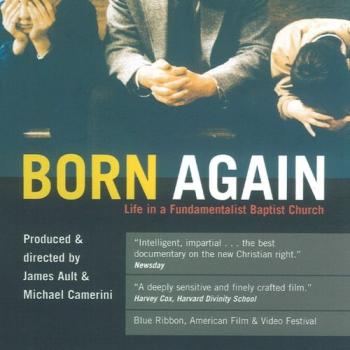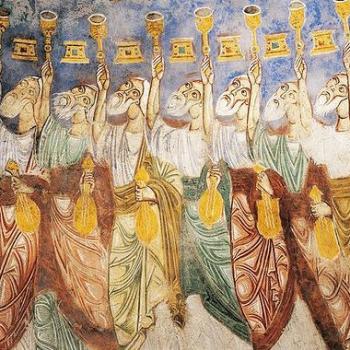Did I Belong to a Cult? The Story (in Brief) of My Spiritual Journey (Or How I Survived Spiritual Abuse but Still Bear the Scars) Part Three
Again…some readers may wonder why I am telling this story here and now? One reason is that nothing communicates truth better than stories. That’s why Jesus told parables and much of the Bible consists of stories—some of them not very pleasant, “inspiring,” “uplifting.” If I simply wrote about spiritual abuse, cultic behavior, in supposedly “evangelical” religious organizations, that would not communicate the point as well as telling my own story as a “case study” of such. Of course, stories, even those in the Bible, beg interpretation. Much of the Bible is also interpretation of the stories. But don’t most people remember the stories best?” Think of sermons you’ve heard; if you’re like me and most people it’s the storied illustrations you remember best!
Also, by telling my story and identifying what happened to me within an evangelical context as spiritual abuse I hope to comfort some people who still struggle with the shame of spiritual abuse and spur them and others to call what happened to them by its name and oppose spiritual abuse.
Also, as I will say in my final installment of this series, a church or other religious organizations does not have to be blatantly heretical to be “cultic.” A perfectly orthodox Christian group can be cultic insofar as its ethos includes a pattern of spiritual abuse.
Finally all this is leading up to some theological reflections on God’s will. To whet your appetite…I believe that, in spite of everything I suffered during my four years in Bible college, my being there was God’s will. I do not regret attending it or staying in it. God does move in very mysterious ways and he does not particularly care about our emotional comfort if suffering emotionally (sometimes physically as well) can lead us on the path he has marked out for us—to best serve the cause of his kingdom in this world.
On to the rest of the story of my college experience of spiritual abuse…
Almost immediately upon entering classes at Bible college I discovered how different it was from my high school and even my home church. In high school I was rewarded for being an inquiring mind; critical thinking was encouraged. No questions were unwelcome—so long as they were sincerely asked with a desire to know and understand. If my high school teachers didn’t know an answer they would find it or point me in the right direction to find it. My father, my pastor, never shamed me for asking a question even when he didn’t know the answer and didn’t care to help me find one. Sometimes he would simply say “That’s a good question, son, I hope you find the answer someday.” I remember many Sunday School classes and Bible studies including vigorous discussions, including some hard questioning, about the Bible and our interpretation of it.
I entered my Bible college classes with good intentions, sincerely wanting answers to my (and Larry’s) questions about the Bible, about God and evil, about our church’s doctrines—some of which I could not find clearly stated in Scripture. I soon discovered that my questions were unwelcome—both by teachers and students. More than a few times when I raised my hand in class students sitting near me reached over and pulled my hand down. The teaching style was almost uniformly lecture—usually a solid hour of often almost incoherent blather without opportunity for discussion. I began to realize that some of my teachers simply did not know much about the subjects they were teaching. My “American Literature” teacher was the president’s secretary and I definitely knew more about American literature than she! Some of my teachers spent at least half of every class session on “devotions.” Some of my teachers honestly admitted they did not know the subjects they were assigned to teach. My philosophy professor knew little about philosophy. But most disappointingly, I quickly gained a reputation for being unspiritual just because I was intellectually curious and not willing simply to accept whatever I was told. The German saying “Eat up, little birdies, or die!” could have been the motto of the college during those years.
One semester I began to keep track of how many class sessions the professor skipped—not even sending someone to inform the class he would not attend. Seventeen times during the semester he simply did not come to class. After about the seventh time I went looking for him—after sitting in the room with the other students for about fifteen minutes. I always found him either in his office or the president’s office or somewhere in the building. Other students chided me for bothering with it; they were happy when the professor didn’t show up and simply left after about fifteen minutes—often to go to the student lounge to play ping-pong or go back to the dorm to nap. They told me in no uncertain terms that they did not appreciate my efforts to get the professor to attend class. Of course, there were exceptions among the students who did look to me to make a difference. Few, however, were willing to stick their necks out as I did. I dared to go to the administration and even the board of the college (as student body president) to complain about the problems that affected students. (The board’s reception was general agreement about the problem but at the same time stern correction for daring, as a student, to mention the problems!)
I don’t mean to make myself out to be a hero; I was not a perfect student or citizen of the institution. However, unlike some of my fellow students, I kept most of the rules, even the totally arbitrary ones, but openly criticized the administration and some of the faculty—when they did not give students our money’s worth in education, food, housing or when they imposed arbitrary and meaningless rules on us.
There was, however, one rule I eventually flagrantly disobeyed—required chapel attendance. Chapel “services” were, often, simply ridiculous. Students were subjected to the president weeping and ranting because he saw a male student with his hand on his girlfriend’s knee in the student lounge. We were subjected to a guest “evangelist” every day for a week who claimed to be a modern day apostle and prophet and who went around chapel laying hands on students’ heads and commanding them to “prophecy!” or “speak in tongues!” or “interpret that message in tongues!” This went on to the great terror of students for an hour to two hours every morning. When I attempted to approach the guest evangelist after chapel, during lunch in the cafeteria, I was told to get away by the president who knew about my qualms about such “Latter Rain” manifestations and behaviors. One chapel speaker, a denominational pastor, preached about “Astrocatastrophics” and read an entire article from Argosy magazine—about the likelihood of a comet hitting the earth. Most chapel “services” were of the same general quality. Eventually I stopped attending chapel. To this day, many years later, my college transcript has stamped on it in big bold letters surrounded by stars “Excessive Chapel Absences”!
During my four years in the college there were five presidents. Things became so bad that eventually the denomination stepped in and took over the college. But students were still shamed in chapel for daring to question or criticize even though it was common knowledge that the president (not the first or the last of the five), who had been forced to step down, was misappropriating funds to the tune of many thousands of dollars—at a time when food in the cafeteria was so inedible many students ate meals at nearby fast food restaurants (even though we were required, unless married or living with parents or relatives, to pay for meal plans). It was also a time when the boiler in the main classroom building broke down in the middle of winter and faculty and students had to wear coats, gloves and hats to classes for a month.
I decided early in my college career that if I was going to get an education I had to get it on my own—and that I did. I bought and borrowed books, building up a personal library and reading voraciously. I spent hours every week at libraries. I met with pastors I respected to pick their brains. I met with the few professors I respected and who were willing to tutor me outside of class and discussed subjects with them that most students would have not wanted to discuss.
One question I persistently asked in class and outside of it was “Where in the Bible does it say that one has to speak in tongues to be filled with the Holy Spirit?” Our denomination claimed that all our doctrines were directly drawn from clear teachings of Scripture. I knew this was our “distinctive doctrine,” but I also knew that Billy Graham (who had longer hair than we were allowed to wear!) wrote in his book on the Holy Spirit that he had never spoken in tongues. (When I asked about that I was told Billy Graham was the exception to our doctrine!) Finally, the one main teacher I respected and had a good relationship with, and who I think sympathized with my question and couldn’t satisfactorily answer it, invited our denomination’s most influential pastor to class to answer my question. I sat directly in front of him as he spoke. He pointed out an alleged “pattern” in the Book of Acts that he claimed supported our key distinctive doctrine. I challenged him that a “pattern” was not sufficient to support a doctrine, a test of fellowship that kept us apart from other evangelical Christians—demeaning them by saying they cannot be Spirit-filled. Finally, in angry exasperation, he looked down at me from his podium and declared “If we didn’t believe it we wouldn’t be Pentecostals, would we?” At that moment I knew I had to work my way out of that denomination and tradition.
There were several “points of light” in the darkness that was that college during those years. One teacher, a local pastor I became very close to, encouraged me in every way while also gently correcting me when I occasionally allowed my anger to show. He was angry, too, and used his influence as a pastor of the denomination to attempt to fix the college. He encouraged discussion in his classes and freely recommended books for me to read and even loaned them to me from his personal library. He took me under his wing and mentored me in his church. There were a few other teachers and administrators who were competent and supportive. Most of them did not last long as they were perceived as threats by the administration.
Other points of light were some of my fellow students—my roommate who is still my good friend so many years later and my fiancée who married me between my junior and senior year—after she graduated. She did me an enormous favor I can never repay! (When we got engaged I overheard a denominational leader who knew both of us well say “Well, Roger is getting the best end of that deal!” He was certainly right.)
During my senior year I decided to do my best to stay out of conflicts and controversies. I was married and enjoying married life to the fullest—as much as was possible on our meager incomes! But by then, even though the denomination had taken over the college and virtually admitted it had been dysfunctional if not abusive, I was treated as a rebel by even the new administrators, most of the faculty and many of the students. I had stopped caring and just looked forward to graduating and moving on into ministry—somehow and somewhere. I pre-enrolled in an evangelical Baptist seminary. I knew my education was not finished; I still had questions that needed answers.
Then word filtered down to me that the board of the college was considering denying me graduation, an earned degree, because I was such a “rebel.” My uncle intervened and I was reluctantly allowed to graduate. I had earned “magna cum laude” status but it was not put on my diploma or my transcript—until later when I insisted. I was not recognized at the commencement ceremony as one of the students graduating “with honors” in spite of my nearly 4.0 GPA. One member of the board of trustees told me to my face that he voted to not let me graduate and that I had no future in the denomination.
Once word got out that I was attending seminary I was ostracized by the denomination as never before. But once I began classes at the seminary I felt a huge relief. I discovered there were God-fearing, Bible-believing, Jesus-loving Christians with high education and inquiring minds who welcomed my questions. Not once during my three years in seminary did any professor shame me for asking any question. Most of my classes included vigorous discussion. I was encouraged to read and think critically—even though the seminary was broadly evangelical in the Pietist tradition. Or perhaps because it was! I felt comfortable but challenged there. I felt accepted there. I was being enriched spiritually and intellectually there. And yet, on the other and, I felt an outsider. These were not “my people.” My people had excluded me.
One of the first things I noticed at seminary was the president encouraging students to call him by his first name and spending time just chatting and even laughing with students. His door was always open to us. When I occasionally found need to question something, some decision by the administration or faculty, my question was listened to respectfully. Not once did I experience or see spiritual abuse there. The faculty even encouraged me to remain Pentecostal if possible but also opened their door wide to me if I wanted to become Baptist. (Eventually I did.) Never did any of them or fellow students criticize or shame me for being Pentecostal; if anything they were curious about it.
It was like leaving night and entering day. I felt like Plato’s allegorical cave dweller who managed to crawl out of the cave into the light. But I felt tremendous emotional pain from the abuse I suffered at the hands of people who, at the college, were, in some sense, my spiritual family. Instead of nurturing me they attempted to kill my spirit and mind.
One of the key hallmarks of a cult is spiritual abuse and spiritual abuse is whenever the person pointing out a problem within a religious context is made to be the problem, shamed, just for pointing out the problem. That is what I experienced for four years. I now am comfortable saying that I lived in a cult for four of the most formative years of my life. Or at least that I experienced it as a cult—in the sense of an insular, abusive, totalistic religious organization.
One of the things people who have never experienced it do not understand is why victims of spiritual abuse within religious cults don’t simply leave. To be continued….
















